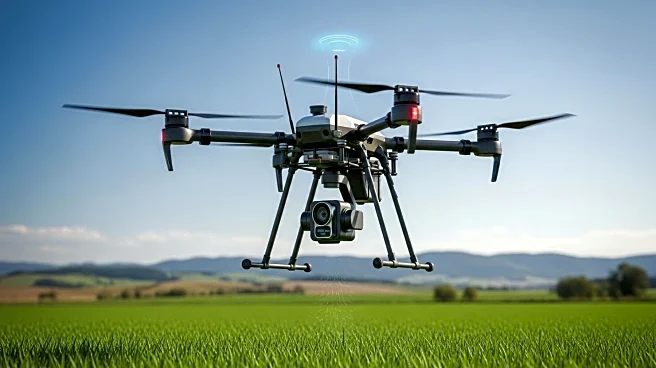What is the story about?
What's Happening?
The Farming as a Service (FaaS) market is experiencing rapid growth, driven by the integration of next-generation technologies such as AI, machine learning, and IoT devices. This business model offers agricultural services like farm management, precision farming, and equipment rental on a subscription or pay-per-use basis. The market, valued at $4.79 billion in 2024, is projected to reach $16.96 billion by 2032, growing at a CAGR of 17.12%. Key players include Deere & Company, Trimble Inc., and CropX Inc. The FaaS model helps farmers optimize resources, reduce costs, and improve yields without significant upfront investments. Recent developments highlight a focus on sustainable practices and government initiatives to support FaaS adoption.
Why It's Important?
The expansion of the FaaS market is significant for the agricultural sector, particularly in the U.S., as it provides farmers with access to advanced technologies and data-driven insights. This model is especially beneficial for small and medium-sized farmers who can now leverage expensive technologies without heavy investments. The emphasis on sustainability aligns with consumer demand for eco-friendly food production, addressing environmental challenges. The integration of AI and precision agriculture enhances efficiency, potentially transforming farming practices and boosting productivity. The involvement of government and private sector initiatives further accelerates the adoption of FaaS, contributing to food security and agricultural innovation.
What's Next?
The FaaS market is expected to continue its growth trajectory, with further advancements in automation and robotics. The adoption of autonomous tractors and AI-powered systems will likely increase, addressing labor shortages and enhancing operational efficiency. As the market evolves, stakeholders, including farmers, agribusinesses, and policymakers, will need to adapt to new technologies and business models. Continued collaboration between government and private sectors will be crucial in supporting the transition to more sustainable and technologically advanced farming practices.

















